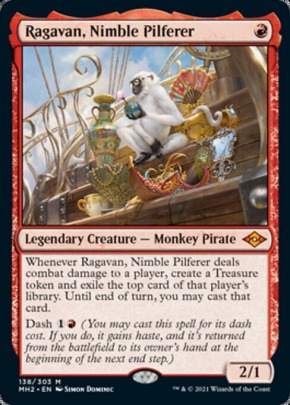

Assisted by Arbor Elf (~€0.5) and Utopia Sprawl (~€8) it can come down on turn 2 quite consistently. It is the source of must frustration on your opponents side and a known provoker of blue players’ tears.ĭue to its several reprints, newer versions can be acquired for around €10.It is able to hose entire strategies on its own.Blood Moonīlood Moon is the police of the Modern format.

This article will discuss a few strategies, cards and decks that are relatively affordable and at the same time pose serious competition for the top tier lists revolving around Ragavan, Urza’s Saga or W&6. This is why there is an answer for everything in Modern.

It seems that aspiring Modern players should be ready to constantly invest in new staples to keep up with the ever-changing landscape of the format.īut what if you don’t have the possibilities to continuously acquire new, power creeped cards, or if you just don’t want to make your hobby a financial liability? Should you just step away from Modern then and look to play something else? I don’t think so.Īs mentioned above, Modern is a dynamic format with various viable decks and strategies, none of which is without weaknesses. This is exemplified by format all-stars like Force of Negation, Wrenn and Six or the new elemental incarnations of MH2.Īdditionally, the Modern metagame is today more dynamic than ever, with changes in the tier list occurring almost weekly. Recently, though, non-land cards make up for an increasingly large proportion of a deck’s cost. Traditionally, Modern decks were so expensive because of the lands they use – which is usually a combination of Fetch- and Shocklands. Coming from Standard, where Pathways are your most valuable lands in terms of money, the manabase of a Modern deck alone will likely slaughter your piggy bank. Modern has always been an expensive format. With Modern Horizons 2 at peak supply, that is, millions of boosters opened and tens of thousands of singles flooding the market, a playset of Ragavans will still set you back well over €200, while four copies of Urza’s Saga go for around €100.įor experienced players who own a large Modern card pool, these prices may not be that big of an obstacle, since they likely will have to add only a few singles to their collection to adapt to the metagame.īut for players who are new to the format or players who only have one deck that they mastered over time, the financial burden of the new staple cards can pose a severe boundary. And it also sets new standards for what players should expect to pay for these cards. If a creature enters the battlefield as a copy of or becomes a copy of a creature whose dash cost was paid, the copy won't have haste and won't be returned to its owner's hand.Magic’s most recent premium set, Modern Horizons 2 (MH2) set a new standard for what Modern cards can and should do. You don't have to attack with the creature with dash unless another ability says you do. If it dies or goes to another zone before then, it will stay where it is. If you pay the dash cost to cast a creature spell, that card will be returned to its owner's hand only if it's still on the battlefield when its triggered ability resolves. Most of the time, this means during your main phase when the stack is empty. You can cast a creature spell for its dash cost only when you otherwise could cast that creature spell. It goes on the stack and can be responded to and countered. If you choose to pay the dash cost rather than the mana cost, you're still casting the spell. If you exile a land card, you can't play that card. You must still follow all timing restrictions and pay all costs when casting the exiled card. You'll create a Treasure token even if that player has no cards left in their library to exile.


 0 kommentar(er)
0 kommentar(er)
